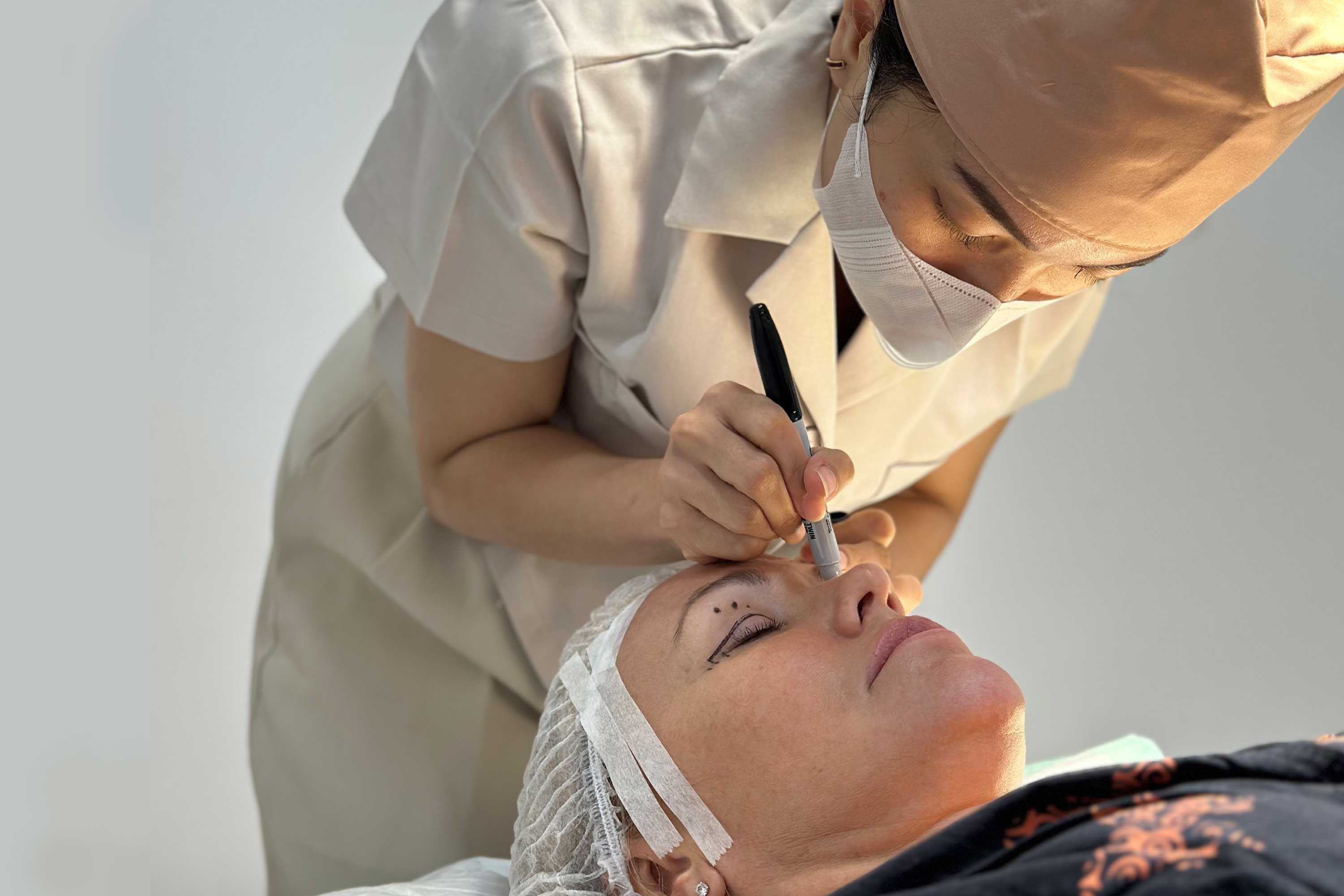
Battling Mandible Cancer: Your Guide to Treatment and Recovery Abroad
Receiving a diagnosis of mandible cancer can be incredibly daunting, bringing with it a whirlwind of questions and concerns about treatment, recovery, and your future quality of life. Mandible cancer, a form of oral cancer that affects the lower jawbone, often requires comprehensive and intricate care, including advanced surgical procedures and sometimes reconstruction to restore facial aesthetics and function. For many, navigating these complex treatment paths can be overwhelming, especially when faced with high costs, long waiting lists, or limited access to specialized care in their home country.
The good news is that advancements in medical science and the rise of medical tourism have opened up new avenues for patients seeking world-class mandible cancer treatment and jaw reconstruction. Patients are increasingly looking abroad for specialized care, combining cutting-edge surgical techniques, advanced radiation or chemotherapy, and highly skilled reconstructive surgeons. This guide aims to demystify the journey, providing clear, empathetic, and SEO-optimized information for those exploring options for mandible cancer treatment overseas, addressing key concerns like "jaw cancer symptoms," "oral cancer treatment options," "jaw reconstruction cost," and "best hospitals for oral cancer abroad." We’ll cover everything from recognizing the early signs to understanding complex treatment plans, recovery expectations, and how medical tourism can be a viable, high-quality solution for your healing journey.
What are the common symptoms of mandible cancer?
Recognizing the early warning signs of mandible cancer can significantly improve treatment outcomes. This type of cancer often manifests with symptoms that might initially seem minor or attributable to other conditions. However, persistent or worsening symptoms should prompt immediate medical evaluation. Patients often search for "jaw pain cancer symptoms" or "mouth sore won't heal." Here are the key indicators:
- Persistent Jaw Pain: A constant ache or tenderness in the jaw that doesn't go away.
- Non-Healing Mouth Sores: A sore, lesion, or ulcer in the mouth or on the gums that bleeds easily and doesn't heal within two weeks.
- Swelling or Lump: A noticeable lump or swelling on the jaw, neck, or inside the mouth.
- Difficulty Chewing or Swallowing (Dysphagia): Pain or a sensation of food getting stuck when chewing or swallowing.
- Numbness or Tingling: A persistent feeling of numbness or tingling in the lower lip, chin, or any part of the face (often searched as "numb chin cancer").
- Loose Teeth or Denture Issues: Teeth becoming loose without a clear dental cause, or dentures no longer fitting properly.
- Changes in Voice: Hoarseness or other voice changes that last more than two weeks.
- Weight Loss: Unexplained weight loss due to difficulty eating or swallowing.
If you experience any of these symptoms, especially if they are persistent, it's vital to consult a doctor. Early diagnosis is key to effective "oral cancer treatment."
What causes mandible cancer and who is at risk?
Understanding the causes and risk factors behind mandible cancer, often asked as "what causes bone cancer in jaw," can help in prevention and early intervention. While not everyone with risk factors will develop cancer, and some without any may, these factors significantly increase the likelihood:
- Tobacco Use: Smoking cigarettes, cigars, pipes, and using chewing tobacco or snuff are major risk factors. The harmful chemicals damage cells in the mouth and throat.
- Heavy Alcohol Consumption: Regular and excessive alcohol intake increases the risk, especially when combined with tobacco use.
- Human Papillomavirus (HPV) Infection: Certain strains of HPV, particularly HPV-16, are increasingly linked to oral cancers, including those affecting the jaw.
- Excessive Sun Exposure: Prolonged sun exposure, especially to the lips, increases the risk of lip cancer, which can spread to the jaw.
- Weakened Immune System: People with compromised immune systems (e.g., organ transplant recipients, HIV/AIDS patients) have a higher risk.
- Poor Nutrition: A diet lacking fruits and vegetables may also contribute to risk.
- Age: The risk of most oral cancers increases with age, typically after 40.
- Gender: Men are twice as likely as women to develop oral cancer.
It's important to remember that most mandible cancers are squamous cell carcinomas, originating from the flat cells lining the mouth and throat. Reducing exposure to these risk factors is crucial for prevention.
What are the treatment options for mandible cancer, including surgery and reconstruction?
The approach to treating mandible cancer is highly individualized, depending on the cancer's stage, location, and the patient's overall health. Patients frequently search for "mandible cancer surgery options" or "jaw reconstruction after cancer." A multidisciplinary team of specialists, including head and neck surgeons, radiation oncologists, medical oncologists, and reconstructive surgeons, typically devises the plan. Key treatment modalities include:
- Surgery (Mandibulectomy): This is the primary treatment for most mandible cancers. It involves removing part or all of the jawbone affected by the tumor. Depending on the extent of the cancer, nearby lymph nodes may also be removed (neck dissection).
- Reconstructive Surgery: After removing part of the jaw, reconstructive surgery is often essential to restore the jaw's shape and function. This typically involves using bone grafts from other parts of the body (like the fibula from the leg, or scapula from the shoulder) to rebuild the jaw. This complex procedure aims to improve chewing, speaking, and facial aesthetics. Patients often look for "jaw reconstruction surgery" or "microvascular free flap jaw."
- Radiation Therapy: High-energy X-rays or other types of radiation are used to kill cancer cells or keep them from growing. It can be used after surgery to destroy any remaining cancer cells, or as a primary treatment for early-stage cancers or for patients who cannot undergo surgery.
- Chemotherapy: Drugs are used to kill cancer cells, either by stopping them from growing or by directly destroying them. Chemotherapy might be given before surgery to shrink the tumor (neoadjuvant), after surgery to eliminate remaining cells (adjuvant), or alongside radiation therapy (chemoradiation).
- Targeted Therapy: These drugs target specific genes or proteins that contribute to cancer growth, often with fewer side effects than traditional chemotherapy.
- Immunotherapy: This treatment boosts the body's own immune system to fight cancer. It's becoming an important option for certain types of advanced oral cancers.
The goal is always complete removal of the cancer while preserving as much function and appearance as possible. Reconstructive surgery, in particular, has seen significant advancements, offering patients better post-treatment quality of life.
Who is eligible for mandible cancer treatment and what factors influence eligibility?
Determining eligibility for mandible cancer treatment, especially for complex procedures like reconstructive surgery, involves a thorough evaluation by a team of specialists. Key factors influencing who is eligible and what treatment path is recommended include:
- Cancer Stage and Location: Early-stage cancers confined to the jawbone often have different treatment plans than advanced cancers that have spread to lymph nodes or other parts of the body (metastatic oral cancer). The exact location within the mandible also dictates surgical approach.
- Overall Health and Comorbidities: Patients must be healthy enough to undergo major surgery, anesthesia, and potentially lengthy recovery periods. Pre-existing conditions like heart disease, diabetes, or severe lung issues can affect eligibility for certain aggressive treatments.
- Patient Preferences and Goals: While medical teams offer recommendations, the patient's wishes regarding quality of life, functional outcomes, and acceptable risks are crucial in shared decision-making.
- Nutritional Status: Adequate nutrition is vital for healing and tolerating treatments. Patients who are malnourished may need nutritional support before and during treatment.
- Smoking and Alcohol Status: Continued smoking and heavy drinking can complicate treatment, increase risks, and worsen prognosis. Quitting is highly encouraged before starting treatment.
A comprehensive assessment, including imaging (CT, MRI, PET scans), biopsies, and detailed medical history, helps determine the most appropriate and effective treatment strategy for each individual, often addressing queries like "patient selection criteria for oral cancer surgery."
What is the typical recovery process after mandible cancer surgery and reconstruction?
The recovery journey following mandible cancer surgery, particularly when complex jaw reconstruction is involved, is extensive and requires patience and dedication. Patients often search for "jaw surgery recovery timeline" or "oral cancer rehabilitation." Here's what to expect:
- Immediate Post-Operative Period (Hospital Stay): Patients typically spend several days to a couple of weeks in the hospital, often in an intensive care unit initially. Pain management, monitoring of the surgical site, and managing any drains or tubes are critical. A tracheostomy (breathing tube) or feeding tube (gastrostomy) may be temporarily in place.
- Nutrition: Due to swelling and surgical changes, eating by mouth may be difficult or impossible for weeks or months. A feeding tube ensures adequate nutrition and hydration during this crucial healing phase.
- Pain and Swelling: Significant pain and swelling are common. Medications will be prescribed to manage discomfort. Swelling can persist for weeks or even months.
- Rehabilitation: This is a cornerstone of recovery. Speech therapists, occupational therapists, and physical therapists play vital roles:
- Speech Therapy: To improve speech clarity and articulation after changes to the mouth and jaw (often searched as "speech therapy after jaw cancer").
- Swallowing Therapy: To re-learn how to swallow safely and effectively, reducing the risk of aspiration and allowing for eventual return to oral feeding ("swallowing difficulties oral cancer").
- Physical Therapy: To maintain neck and shoulder mobility and address any issues from the donor site for reconstruction.
- Dental Rehabilitation: Once the reconstructed jaw has healed, dental implants or prosthetics may be considered to restore teeth and complete oral function, often a year or more after the initial surgery ("dental implants after jaw cancer").
- Emotional Support: The physical changes and functional challenges can take an emotional toll. Psychological counseling and support groups are invaluable.
Full recovery and adaptation can take anywhere from six months to several years, but with dedicated rehabilitation, most patients regain significant function and a good quality of life.
What are the potential risks and side effects of mandible cancer treatments?
Like all significant medical procedures, mandible cancer treatments come with potential risks and side effects. It's important for patients and their families to be fully informed to make educated decisions and manage expectations. Common searches include "jaw cancer surgery complications" or "radiation therapy side effects head and neck."
- Surgical Risks:
- Bleeding and Infection: Standard surgical risks.
- Nerve Damage: Can lead to numbness in the lower lip or tongue, facial weakness, or difficulty with swallowing.
- Difficulty with Speech and Swallowing: Changes to the mouth and jaw can significantly impact these functions.
- Facial Deformity: Even with reconstruction, some changes to facial appearance are possible.
- Donor Site Complications: If bone is taken from another part of the body, there can be pain, infection, or functional issues at that site.
- Flap Failure: In reconstructive surgery, there's a small risk the grafted tissue may not survive.
- Radiation Therapy Side Effects:
- Mouth Sores (Mucositis): Painful sores inside the mouth and throat.
- Dry Mouth (Xerostomia): Damage to salivary glands, often permanent.
- Difficulty Swallowing: Due to swelling and irritation.
- Skin Changes: Redness, peeling, or darkening of the skin in the treated area.
- Fatigue: Common during and after treatment.
- Osteoradionecrosis: A serious but rare complication where radiation damages the jawbone, leading to non-healing bone exposure.
- Chemotherapy and Targeted Therapy Side Effects:
- Nausea and Vomiting: Though often manageable with anti-nausea medications.
- Hair Loss: Depending on the specific drugs used.
- Fatigue: A common and often debilitating side effect.
- Increased Risk of Infection: Due to lowered white blood cell counts.
- Neuropathy: Numbness or tingling in hands and feet.
Your medical team will discuss these risks in detail and work to mitigate them, providing supportive care throughout your treatment journey.
How much does mandible cancer treatment cost worldwide, and why consider abroad?
The cost of mandible cancer treatment, particularly involving surgery and jaw reconstruction, can be a substantial burden, especially in Western countries. Patients often search for "cost of oral cancer surgery" or "affordable jaw cancer treatment." This financial strain is a primary reason many patients consider medical tourism. Here’s a comparative look and reasons why seeking treatment abroad can be beneficial:
Worldwide Cost Comparison (Indicative Prices for Mandible Resection with Reconstruction)
| Country | Estimated Cost Range (USD) | Key Advantages for Medical Tourists |
|---|---|---|
| United States | $80,000 - $180,000+ | Advanced technology, highly specialized surgeons, but very high costs. |
| United Kingdom | $60,000 - $130,000+ | Excellent healthcare, but longer wait times in public sector, high private costs. |
| India | $20,000 - $45,000 | Highly affordable, internationally accredited hospitals, skilled surgeons, English-speaking staff. |
| Turkey | $25,000 - $50,000 | Modern facilities, experienced doctors, competitive pricing, good tourism infrastructure. |
| Thailand | $28,000 - $55,000 | Reputable hospitals, excellent patient care, combines medical treatment with a recuperative holiday. |
| Mexico | $22,000 - $48,000 | Proximity for North Americans, growing number of high-quality facilities, lower costs. |
| South Korea | $40,000 - $70,000 | Cutting-edge technology, highly innovative surgical techniques, excellent outcomes. |
*These are estimated costs and can vary significantly based on the stage of cancer, specific surgical techniques, hospital choice, surgeon's fees, length of stay, and additional treatments like radiation or chemotherapy.*
Why Consider Medical Tourism for Mandible Cancer Treatment?
Patients look beyond their borders for critical care for several compelling reasons:
- Cost Savings: As seen above, the financial savings can be substantial, making life-saving treatments accessible.
- Access to Specialized Care: Some countries excel in specific types of surgery or have a higher volume of complex cases, leading to greater expertise. This is particularly true for intricate "jaw reconstruction techniques."
- Shorter Wait Times: In countries with universal healthcare, wait times for specialized procedures can be long. Traveling abroad often means quicker access to treatment.
- Advanced Technology and Techniques: Many international hospitals invest heavily in the latest medical technology and innovative surgical approaches, offering state-of-the-art care.
- Privacy and Confidentiality: Some patients prefer to seek treatment away from their local community for privacy reasons.
Which countries offer high-quality, affordable mandible cancer treatment for medical tourists?
When considering medical tourism for mandible cancer, choosing the right country and facility is paramount. Patients often search for "best countries for oral cancer treatment" or "top hospitals for head and neck cancer abroad." Several countries have established themselves as leaders in delivering high-quality, yet affordable, specialized cancer care:
- India: Renowned for its JCI-accredited hospitals, highly skilled head and neck surgeons, and significant cost savings. Major cities like Delhi, Mumbai, and Bangalore offer world-class oncology centers.
- Turkey: A rising star in medical tourism, offering state-of-the-art hospitals, often with English-speaking staff, competitive pricing, and excellent patient experience in cities like Istanbul and Ankara.
- Thailand: Known for its luxurious private hospitals, patient-centric care, and combining treatment with recovery in beautiful, relaxing environments, particularly in Bangkok and Phuket.
- Mexico: An increasingly popular choice, especially for North American patients, due to its geographical proximity, affordable rates, and growing number of internationally recognized medical facilities along the border and in major cities.
- South Korea: While slightly higher in cost than some other Asian destinations, South Korea is at the forefront of medical technology and surgical innovation, offering exceptional outcomes in complex cases.
When selecting a destination, consider factors beyond just cost, such as hospital accreditation (e.g., JCI), surgeon's experience, available technology, and post-operative support services.
What should I expect during the medical travel process for mandible cancer treatment?
Embarking on a medical journey abroad requires careful planning and coordination. A medical tourism facilitator like PlacidWay can streamline this complex process, ensuring a smooth and safe experience. Patients often wonder about "medical travel logistics for cancer" or "how to find a clinic abroad." Here’s a general overview of what to expect:
- Initial Consultation & Treatment Planning: This usually begins remotely. You'll send your medical records (biopsy results, imaging scans) to an international hospital or a facilitator. The medical team will review your case, provide a treatment plan, a detailed quote, and discuss the expected timeline. This is your opportunity to ask questions, perhaps seeking a "second opinion for oral cancer."
- Travel Arrangements: Once you decide on a plan, you'll arrange flights, accommodation, and obtain any necessary visas. A facilitator can assist with these bookings and even provide airport transfers.
- Arrival and Pre-Treatment Evaluation: Upon arrival, you’ll undergo a comprehensive in-person medical evaluation, including tests and consultations with your surgical and oncology team.
- Treatment Phase: This includes the surgery (mandibulectomy with reconstruction), and potentially post-operative radiation or chemotherapy. Hospital stays can be significant for mandible cancer treatment.
- Post-Operative Recovery and Rehabilitation: After discharge from the hospital, you'll need to remain in the country for a period of recovery and initial rehabilitation. This phase is crucial for healing and early functional recovery. Interpreters and dedicated patient coordinators can facilitate communication.
- Follow-up Care: Before returning home, your medical team will provide detailed instructions for ongoing care and local follow-up. Telemedicine consultations may also be arranged.
To ensure safety and quality abroad, always look for internationally accredited hospitals (e.g., JCI, ISO certified), verify surgeon credentials, read patient reviews, and consider using a reputable medical tourism facilitator that vets clinics and provides comprehensive support.
Are there patient success stories from individuals who sought mandible cancer treatment abroad?
Patient success stories are powerful testaments to the efficacy and value of medical tourism for complex conditions like mandible cancer. While individual results vary, many individuals who have sought "jaw cancer surgery overseas" report highly positive experiences and outcomes. These narratives often emphasize:
- Access to Expert Surgeons: Patients frequently praise the high level of skill and experience of head and neck surgeons specializing in complex jaw reconstruction in countries like India, Turkey, and South Korea.
- Comprehensive Care: Many success stories highlight the holistic approach taken by international hospitals, encompassing not just surgery but also pre-operative assessments, post-operative rehabilitation (speech, swallowing therapy), and emotional support.
- State-of-the-Art Facilities: Patients benefit from cutting-edge diagnostic tools and surgical equipment, contributing to precise treatment and better outcomes.
- Affordability Without Compromise: A recurring theme is the ability to receive top-tier medical care at a fraction of the cost compared to their home countries, without feeling like quality was sacrificed.
- Renewed Hope and Quality of Life: Many survivors share how the treatment abroad not only saved their lives but also restored their ability to speak, eat, and smile, significantly improving their overall "quality of life after oral cancer."
These "real patient experiences" and "oral cancer testimonials" underscore that finding the right medical team, regardless of geographical location, is paramount. For those facing mandible cancer, medical tourism can indeed offer a path to recovery and a renewed future, providing access to life-changing care.
Take the Next Step with PlacidWay
Ready to explore treatment options abroad? Discover top clinics, compare prices, and get a free quote tailored to your needs with PlacidWay.
Cancer Treatment Abroad, Breast Cancer, Lung Cancer










Share this listing